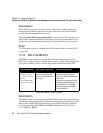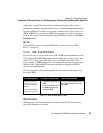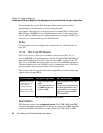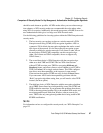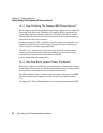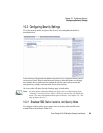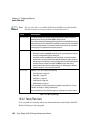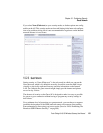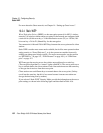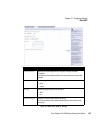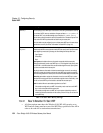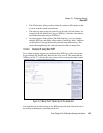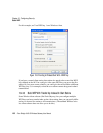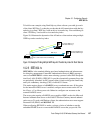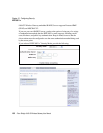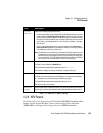Chapter 10: Configuring Security
Static WEP
102
Psion Teklogix 9160 G2 Wireless Gateway User Manual
For more about the Guest network, see Chapter 14: “Setting up Guest Access”.
10.2.4 Static WEP
Wired Equivalent Privacy (WEP) is a data encryption protocol for 802.11 wireless
networks. All wireless stations and access points on the network are configured with
a static 64-bit (40-bit secret key + 24-bit initialization vector (IV)) or 128-bit (104-
bit secret key + 24-bit IV) Shared Key for data encryption.
You cannot mix 64-bit and 128-bit WEP keys between the access point and its client
stations.
Static WEP is not the most secure mode available, but it offers more protection than
setting security to “None (Plain-text)”, as it does prevent an outsider from easily
sniffing out unencrypted wireless traffic. (For more secure modes, see the sections
on “IEEE 802.1x” on page 107, “WPA Personal” on page 109.), or “WPA Enter-
prise” on page 112.
WEP encrypts data moving across the wireless network based on a static key.
(The encryption algorithm is a “stream” cipher called RC4.) The access point uses a
key to transmit data to the client stations. Each client station must use that same key
to decrypt data it receives from the access point.
Client stations can use different keys to transmit data to the access point. (Or they
can all use the same key, but this is less secure because it means one station can
decrypt the data being sent by another.)
If you selected “Static WEP” Security Mode, provide the information on the access
point settings, as shown in the following figure and described in Table 10.6.



